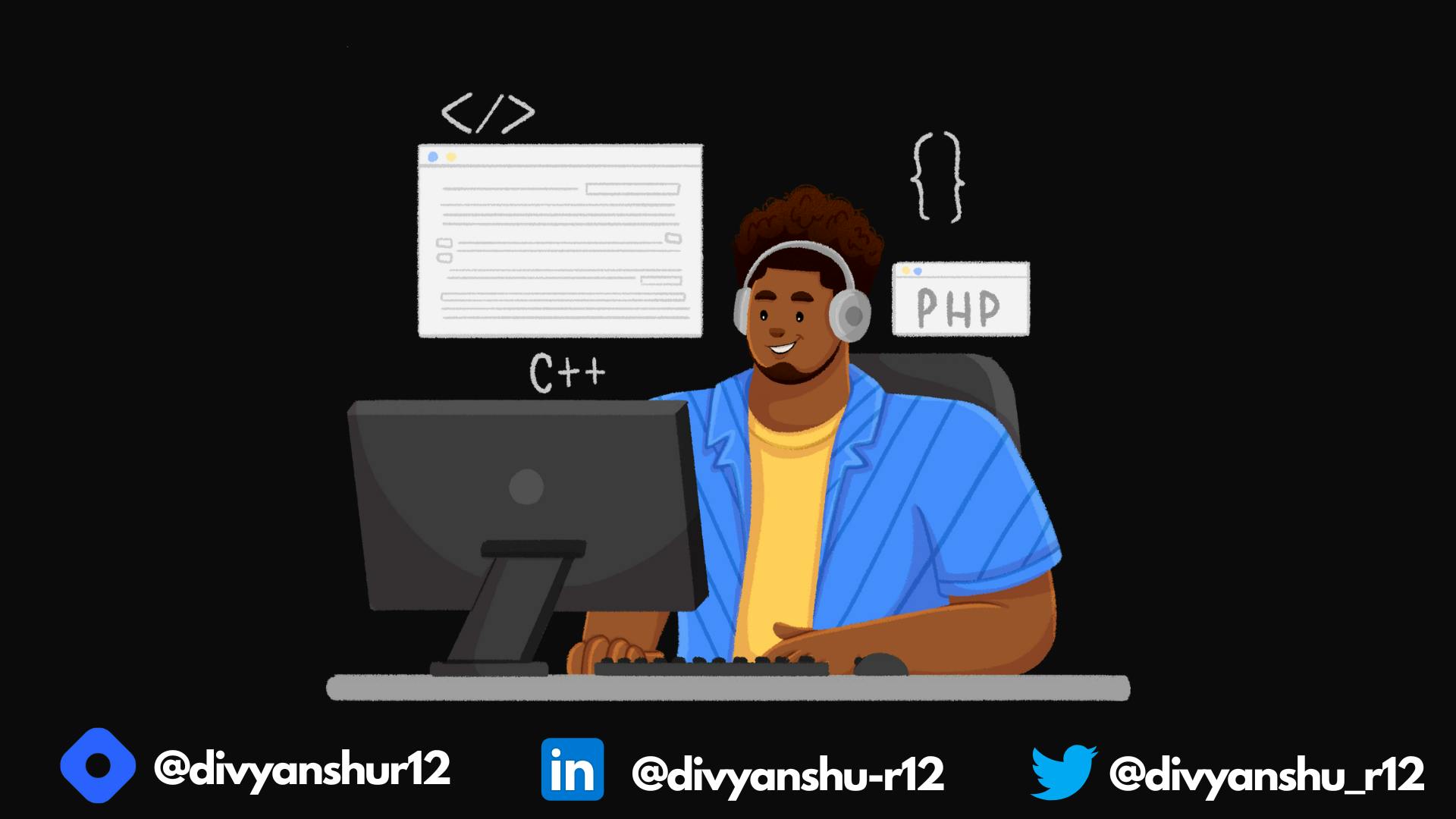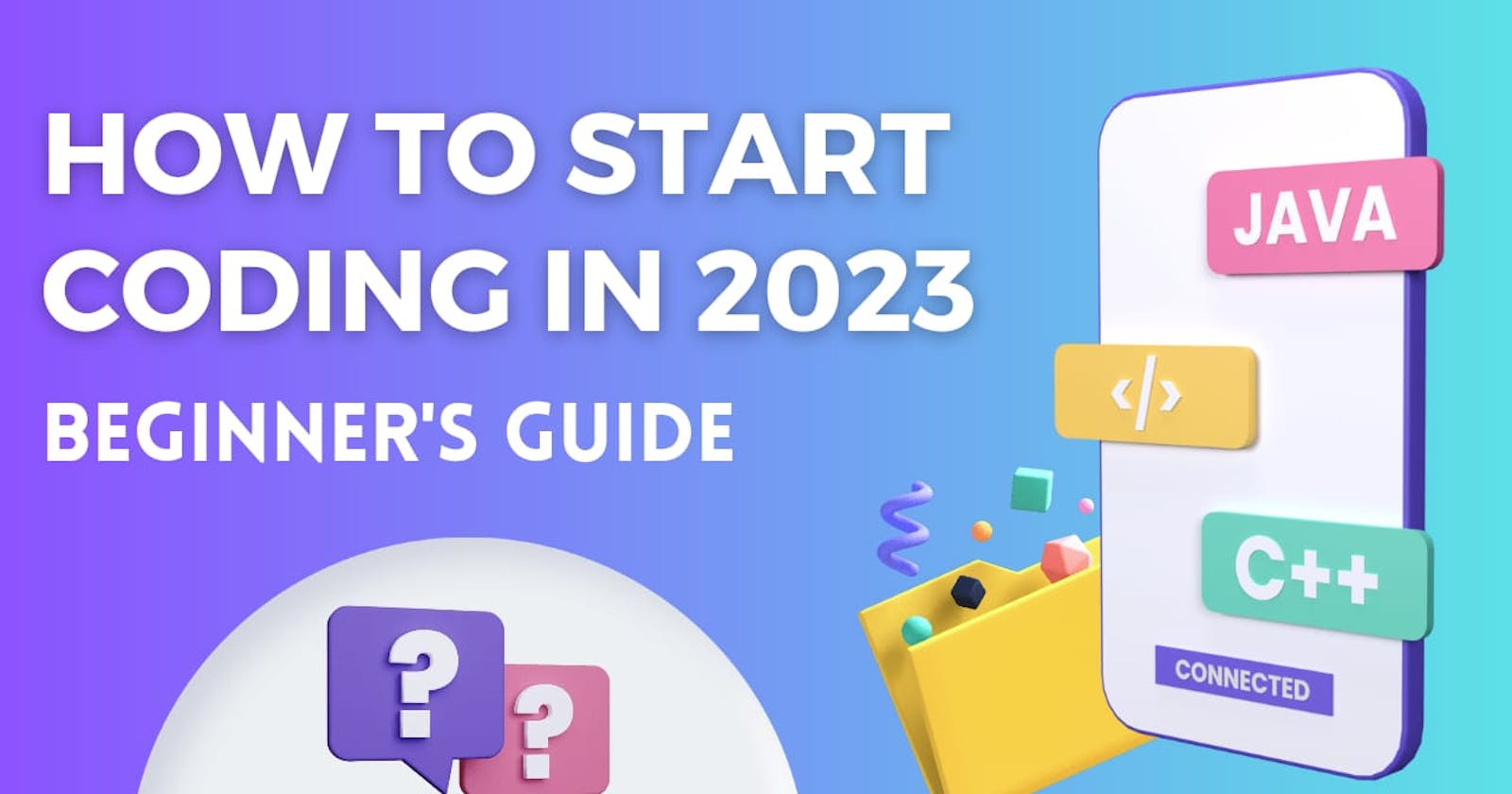Coding, or computer programming, has become one of the most crucial skills in today's technology-driven world. Everyone who steps into engineering, sciences, and technology wishes to become a programmer in order to have a future full of opportunities. In this blog, I will be sharing how a fresher can start programming with the correct approach to achieving milestones of success in the future.

Why to Code?
The most important question that should arise in our minds before starting anything is: "Why am I going to do this?" Because whenever a person tries to do something with a purpose, they never feel exhausted. However, if a task is non-purpose driven, one may feel exhausted and would need some external motivation. The reason why only a few coders are able to excel is that most of them are coding considering programming as the need of the hour. But if you start programming with the purpose of solving problems around you, empowering yourself, or as an exercise for your brain to think in a more structured and logical manner, then you will easily nail it.
Opportunities that one can get from learning to program are:-
To develop computational thinking.
To solve problems around you.
To get good career opportunities.
To gain financial independence at an early age.
To become digitally literate.
Which language to start with?
Just as you learned languages in your childhood to communicate with people around you, you have to learn the language of computers to start communicating with them. In most colleges, students learn 'C' as their first programming language. However, if you want to gain an edge over others in your college, you should start with 'Python'. It is syntactically easy and is required in several highly demanding technological domains such as Artificial Intelligence, Machine Learning, Data Science, Ethical Hacking, etc.
Although you can also start with 'C' or any other language of your choice, but you may face syntax problems in the initial days. During your language learning process, try to stick as closely as possible to the documentation of the language and analyze patterns while solving small programming questions. Coding is all about typing less and analyzing more.
To reinforce your understanding of the concepts you're learning, try building small projects based on those concepts and upload them to 'GitHub'. This will not only help you build your portfolio but also allow you to practice applying your knowledge. So, my advice would be to learn programming while simultaneously building small projects. Never think that you will start making projects only after completing a course because this domain has endless things to learn, and one can never reach an end.
Where to Code?
A few years ago developers used to do programming in Notepad or a text editor but after writing a thousand lines of code it becomes clumsy and problematic to debug. So, the developers started using IDEs( integrated development environment) a software application that helps programmers develop software code efficiently. IDEs offer a lot of features that help programmers develop and maintain programs efficiently, some of these include:-
Syntax highlighting.
Code snippets using AI.
Project manager.
Attractive background themes and font styling.
Integrated version control system.
Integrated Debugger.
Several extensions for better coding experience.
Enabled shortcuts for making programming easy.
So, IDE is one stop solution to have a smooth and efficient coding experience. Several IDEs are being used by the developers e.g. Visual Studio Code(VS Code), Pycharm, Eclipse, Apache NetBeans, etc among which I would suggest you to use 'VS Code' in your initial days and later you can shift to Pycharm if you are using python for developing projects as Pycharm is specially designed for python.
What to do after learning a language?
Congratulation on learning your first-ever programming language now it's the time when you will be using the true potential of your computational device. There are several domains where you will be using the language you learned just to understand basic things. The different domains include Artificial Intelligence, Machine Learning, Cloud Computing, Data Science, Cyber Security, Web Development, Application Development, Blockchain, Cryptography and many more. So, I will suggest you spend a minimum of 15 days on each of these domains understanding and exploring what they are and then deciding the topic which interests and intrigues you the most. This approach will help you to choose the domain of your interest which will ultimately help you to pave the path of being successful as a programmer.
After selecting the domain of your interest start learning about it from the courses available on edX, Coursera,NPTEL, and Google Cloud Platform by top organizations like Google, IBM, Oracle, ISRO, Harvard University, Massachusetts Institute of Technology(MIT) and follow the same approach of developing projects.
Conclusion
Configure why you want to code.
Start by learning a language, my recommendation would be Python.
Use IDE for efficient programming experience.
Explore all the domains before choosing any one of them just by following the trend.
Choose the domain which interests and intrigues you the most.
Start learning from platforms like edX, Coursera, NPTEL, and Google Cloud Platform.
Always develop projects alongside acquiring skills.
Push your project on GitHub.
For further guidance, you can follow me on Twitter at @divyanshu_r12 and follow me on hashnode.
#include<stdio.h>
int main()
{
printf("All the Best for your Coding journey");
}
print("All the Best for your Coding journey")
fun main() {
println("All the best for your Coding journey")
}
